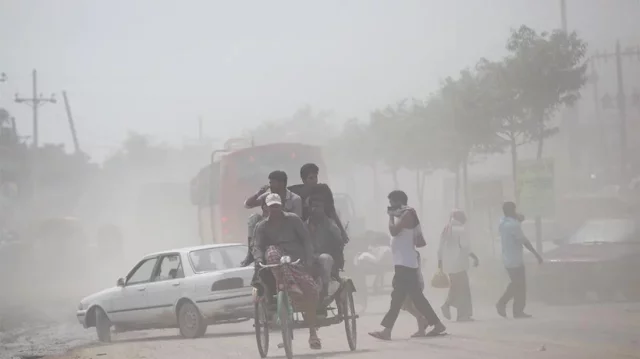In recent decades, global air quality has emerged as one of the most pressing environmental challenges facing humanity. From the smog-choked cities of South Asia to the wildfire smoke that blankets parts of North America and Australia, poor air quality is no longer a local issue—it’s a global crisis.
The increasing concentration of pollutants in the atmosphere poses severe risks to human health, climate stability, and economic productivity.
The State of Air Quality Worldwide
According to the World Health Organization (WHO), 99% of the world’s population breathes air that exceeds safe limits. Cities like Delhi, Lahore, and Jakarta frequently top the list of the most polluted urban areas, with dangerous levels of PM2.5 and PM10 particles. Even developed countries such as the United States, the UK, and Germany are not immune to poor air days, often caused by traffic emissions, industrial activity, or seasonal wildfires.
One of the primary pollutants affecting global air quality is fine particulate matter (PM2.5), which can penetrate deep into the lungs and even enter the bloodstream. Long-term exposure is linked to respiratory infections, heart disease, stroke, and even certain cancers. Nitrogen dioxide (NO₂), sulfur dioxide (SO₂), and ozone (O₃) are also key pollutants, each with their own harmful effects.
Health and Economic Implications
Poor air quality is a silent killer. The Global Burden of Disease study estimates that air pollution contributes to over 7 million premature deaths annually. Children and the elderly are particularly vulnerable, with air pollution exacerbating asthma, bronchitis, and developmental issues in young children.
But the damage doesn’t end with human health. Economically, air pollution costs the global economy trillions of dollars in lost labor productivity, increased healthcare expenses, and damage to crops and buildings. In Asia alone, the economic impact of air pollution could slash GDP growth by up to 1% annually.
Climate Change and Air Quality: A Vicious Cycle
The link between climate change and air quality is undeniable. Many of the same sources that emit greenhouse gases—such as fossil fuel combustion—also produce air pollutants. As global temperatures rise, they can exacerbate smog formation, increase wildfire frequency, and extend pollen seasons, worsening respiratory conditions.
Conversely, cleaner air can help mitigate climate change by reducing black carbon and methane levels in the atmosphere.
Read More: Dust and Hail Storms Expected to Hit Pakistan This Week, NEOC Issues Alert
Solutions and International Cooperation
Addressing the issue requires a coordinated, global effort. Some countries are already taking bold steps. For instance, the European Union has implemented stricter vehicle emission standards, while China has invested heavily in green energy and air quality monitoring. Yet much more needs to be done.
Governments must invest in public transportation, promote renewable energy sources, enforce industrial emission regulations, and support afforestation efforts. Urban planning should prioritize green spaces and non-motorized transport. On an individual level, citizens can reduce their footprint by using energy-efficient appliances, opting for public transit, and supporting clean-air initiatives.
International cooperation is key. Platforms like the United Nations Climate Change Conference (COP) and the Clean Air Fund are fostering cross-border collaboration. Technologies for real-time air quality monitoring, such as satellite-based sensors and IoT networks, are also making it easier to track and respond to pollution events.
Conclusion: The Time to Act Is Now
Improving air quality is not only a public health necessity but also an environmental and economic imperative. The state of global air quality should be a wake-up call to policymakers, industries, and individuals alike. Clean air is a fundamental human right, and protecting it is a responsibility we all share. Only by taking decisive, collective action can we secure a breathable future for generations to come.
Read More: Karachi Heatwave: Health Advisory Issued as Temperatures Spike









